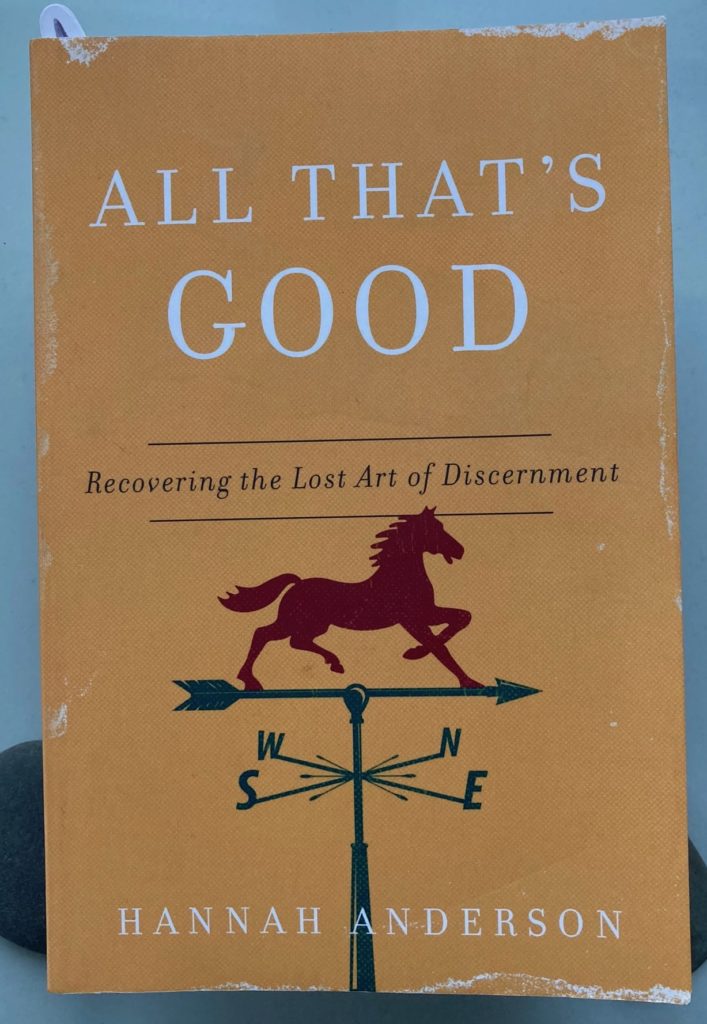“Discernment? Yes, I want that.”
And so I chose this book recommendation out of several given to all the teachers at Chairs Classical Academy by our fearless leader (shout out to Jen!). This is not my typical fair which tends towards more philosophical or…science fiction. Weird combo (or not?), but as a teacher at a classical school the ideas of truth, beauty, and goodness are intriguing to me and this seemed as good a place to dip my toes into that stream as any.

All That’s Good is written by Hannah Anderson, a pastor’s wife and mother and speaker and writer from Virginia. Sometimes I can tackle one or two of these things tolerably well…I mean, except as a husband. Not a pastor’s husband, though. Anyway, I’m impressed by her juggling abilities. With interesting, easy-to-read-though-not-lightweight writing, Hannah explores the concepts of “truth,” “honor” “justice,” etc. – following along with Paul’s list from Philippians 4:8 – as they relate to a Christian’s development of discernment. She does a fabulous job interweaving personal, relatable stories directly to her topic at hand, not just as interesting anecdotes but as metaphors for the points that she is making. It was a pleasure to read.
That said, I should have known I was in trouble when she warns early on that:
“…there are no hacks to discernment. No three easy steps to follow, no lists or tricks or tips to ensure that you’ll be able to make good decisions when you need to. In order to make good decisions, you must become a …person skilled in wisdom and goodness itself.”
I hate that. I am realizing in my old age how wired I am to linear thought. X leads to Y which leads to Z in a nice logical argument. Steps to be accomplished. Single trains of thought to be followed. Everything linked together nice and neat. It’s why I love Paul’s reasoned arguments but find James’ wisdom literature frustrating (not that Paul is simple in any way, but his arguments follow one upon another in a logical way that I find very satisfying).
You could certainly write a book like that about discernment and I would probably like it more. Anderson though, in a more “Jamsian” style, explores various angles of concepts like “the beautiful” and “the commendable” without ever settling into a nicely wrapped conclusion. In this way I enjoyed this book while not really “getting it,” and it gave me some amount of mental discomfort all the way through.
To her credit, she throws me a bone: A brief study guide at the end breaks each chapter down into a few key points (bullet points even!) which helped me to gather some of the flowing ideas into a more manageable container.
In all, I would definitely recommend All That’s Good and not hesitate at all to read another by Hannah Anderson.
